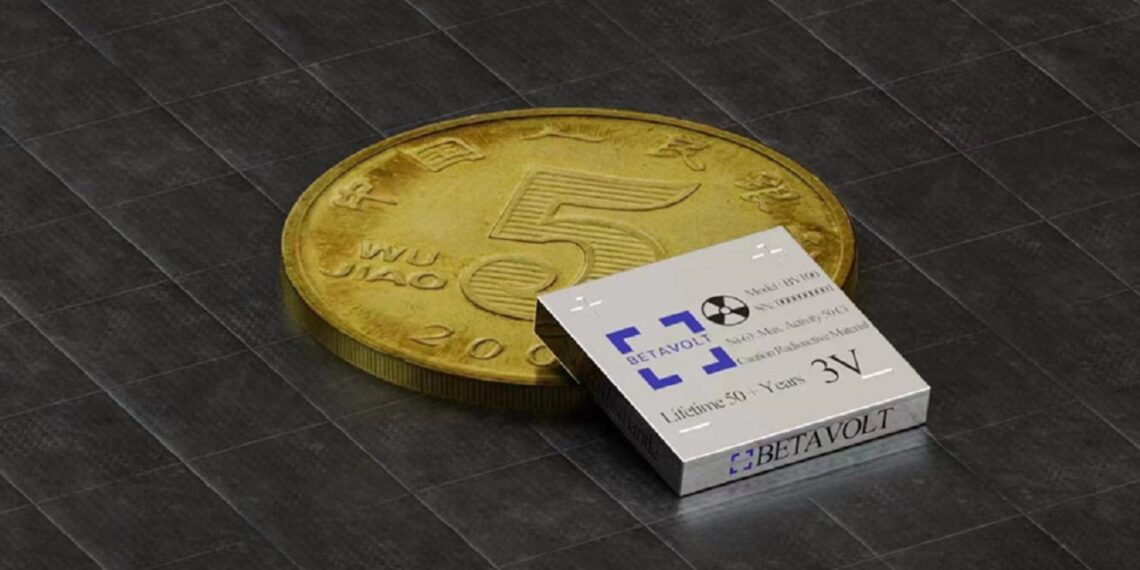Tired of chargeable batteries? A China-based startup has unveiled a nuclear battery with the astonishing capability to generate power for 50 years without requiring charging or maintenance.
This innovation challenges conventional notions of energy storage and positions the start-up Betavolt at the forefront of the energy revolution.
The key to Betavolt’s nuclear battery lies in its utilisation of 63 nuclear isotopes compactly housed within a module smaller than a coin.
The nuclear battery converts radioisotope energy into electrical energy, harnessing the decay of a radioactive isotope to produce a continuous and long-lasting power supply.
The start-up claims that this marks the world’s first successful miniaturisation of atomic energy production, signalling a significant breakthrough in the field.
The initial nuclear battery developed by Betavolt boasts impressive specifications, delivering 100 microwatts of power and operating at a voltage of 3V.
Remarkably, the battery is a mere 15x15x5 cubic millimetres in size.
The company is not resting on this achievement and has ambitious plans to produce a battery with 1 watt of power by 2025, setting a new benchmark for energy density in the industry.
Betavolt envisions widespread applications for its nuclear batteries, ranging from aerospace and AI equipment to medical devices, microprocessors, advanced sensors, small drones, and micro-robots.
Despite its nuclear foundation, Betavolt’s battery is designed with safety in mind.
The layered structure of the battery makes it fire-resistant and jerk-proof, ensuring stability even under sudden external forces.
Additionally, the nuclear battery boasts an impressive operational range, capable of functioning in temperatures ranging from -60 degrees Celsius to 120 degrees Celsius.
Betavolt has already moved its project into the pilot-testing stage and with an eye on commercial applications, is poised to redefine the landscape of long-lasting and reliable power sources in the years to come.















